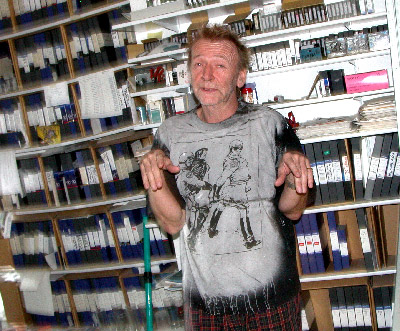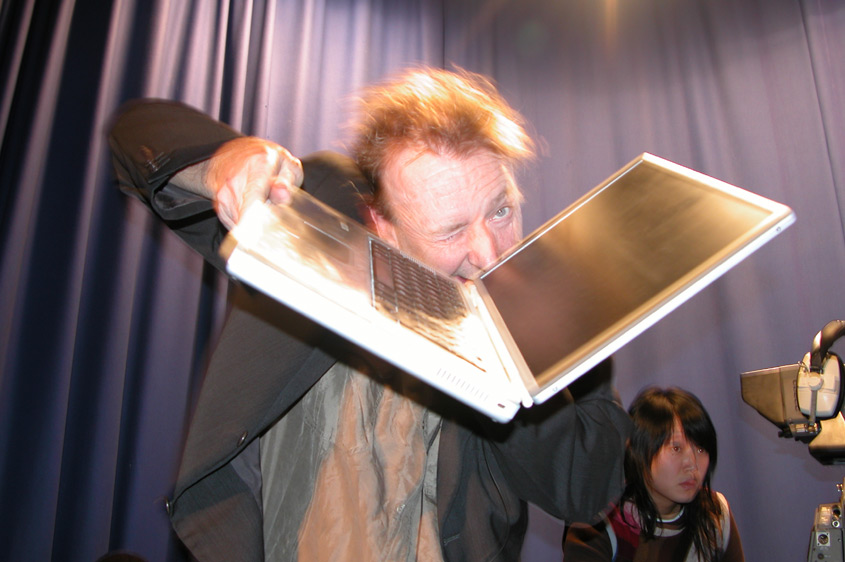|
 |
| Born
1942 in London. Film and video artist. Lives and works in London, Cologne
and Mauritius. David Larcher worked as a photographer and filmmaker during
the sixties, and has been working with the medium of video since 1980. Among British film-makers, David Larcher is someone deeply immersed both in the process of his work and in that of his own being. His moving images reveal the innate nature of film or of video, and his work is a constantly exploratory process. One of his early films, Monkey's Birthday, is very much an extended fragment that reveals his Heracleitan approach to creativity. Almost every frame of this six hours is subjected to a practically alchemical barrage of procedures and treatments which have no reason to be brought to a conclusion: the tinting of frames, the scratching of celluloid, the addition of newly printed repetitions of previously shown takes could go on forever. In Granny's Is, key-edits are superimposed on previously manipulated material, which may comprise imagery Larcher has shot of his grandmother, or material from old home-movies, or material from other films, and we get the sense that we are watching many films at once, each from a multiplicity of perspectives. Larcher studied anthropology and paleontology before embarking on his film career, and his films are many layered. One senses that his process is essentially an archeological one that is at the same time informed by psycho-analysis. Bear in mind that Frreud was fascinated by Pompeii, and liked to compare the process of analysis to that of excavation. In more recent videos, Larcher has moved from the chemistry of film to the physics of the electronic matter he is now engaged with, and Videovoid seems to work from nothing, or rather from signal, static, screen snow - the inchoate stuff of the medium. During screenings of his work, Larcher may make his presence known by commenting on the piece as it gets projected, creating an accompanying performance by picking fights with the audience or getting drunk. Frank Auerbach speaks of the process of painting as "bringing something new to life". For Larcher, it is as if the film or video were still in the process of being born, as if he were still in labour. Critics may say that the work is "unresolved", but I think that this irresolution is part of the meaning. Larcher is a structural romantic, immersed in the modernist obsession with the essential nature of each medium employed, but at the same time refusing to acknowledge a separation between his life and his art, or betweenscience and psychology, or between film and poetry. He is attempting to create an organon in film, an all-embracing, ultimate work that must at the same time remain constantly in labour, forever emergent, never finally formed.Since 1996 David Larcher is a professor of Video Art/Electronic Media at the Academy of Media Arts in Cologne, Germany. A selection of his work includes: Mare's Tail 1969, Monkey's Birthday 1975, EETC 1986, Granny's Is 1989/90, Videøvoid - The Trailer 1993, Videøvoid - Text 1996, Ich Tank 1983/97. DL home |
 |